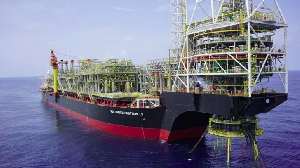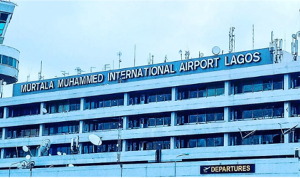THE WESTERN Regional Security Council (REGSEC) is strengthening various security agencies within the region to effectively patrol the twin-city of Sekondi-Takoradi and its border areas in an effort to maintain peace and order before and during the drilling of oil.
REGSEC has also forwarded a request to the National Security Council for redeployment of more security personnel to help beef up the security system for the emerging oil and gas industry.
Paul Evans Aidoo, the Regional Minister and Chairman of REGSEC, disclosed these at the opening of a 3-day capacity development workshop for Community Environmental Management Monitoring and Advocacy Groups (CEMAG) held in Takoradi on the theme “Combining efforts to avoid an oil resource curse and enhancing livelihoods in host communities”.
It was aimed at designing monitoring indicators based on potential negative environmental impacts and identifying platforms to facilitate stakeholder dialogue.
The 3-day workshop, organized by Friends of the Nation (FoN), an environmental non-governmental organization (NGO) in collaboration with the World Bank, was the start of a process to ensure an environmentally sustainable development as well as transparency and accountability in Ghana's oil production.
It was attended by traditional authorities, fisher folk, women and youth groups, workers unions and faith-based organizations among others.
The regional minister noted that Sekondi-Takoradi is already experiencing the effects of increased oil-related economic activities, which are straining its existing infrastructure.
He mentioned that road traffic congestion and high rates of rental facilities, which hitherto were not happening in the twin-city, are now issues being discussed by the media and opinion leaders.
He said in order to take full advantage of the growing activities around direct investments in oil and gas, it is crucial to design and implement integrated strategies that will address issues of governance, regional development, urban planning and city services, particularly in the coastal districts of the region.
Hon. Aidoo noted that there was the need to build the capacity of the people and employ in the industry.
To this end, he said, courses that relate to the oil and gas industry will be introduced in the University of Mines and Technology (UMaT) in Tarkwa to offer the youth in the region a unique opportunity to study in those areas.
The regional minister indicated that people in the region expect that the oil revenue will be used for the provision of airport and habour infrastructure, rehabilitation of major roads linking the rural and urban areas, establishment of oil and gas refineries and the provision of modern railway system among others.
He indicated that the Regional Coordinating Council (RCC) will establish a business link at the various district assemblies along the coast to offer technical assistance to individuals who would like to set up their own businesses.
Donkris Mevuta, Executive Director of FoN noted that even though there is high awareness of oil discovery, there is little knowledge of the industry's activities, which he said could be a recipe for social unrest.
“There is therefore the need to ensure adequate information flow and accelerated preparations of all relevant frameworks before the first oil drops”, he added.
Regional News of Monday, 29 March 2010
Source: Daily Guide
Western Region Beefs Up Security
Opinions











